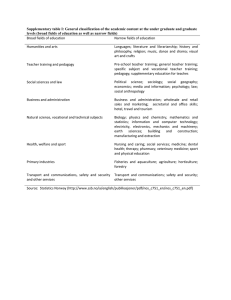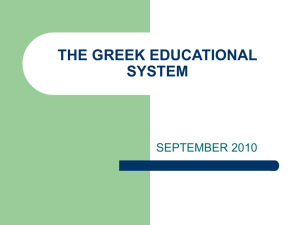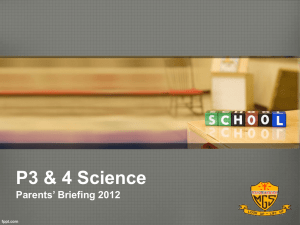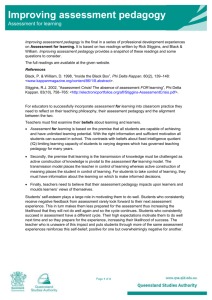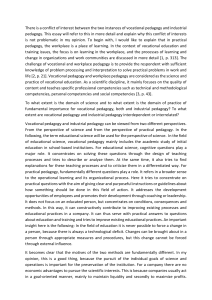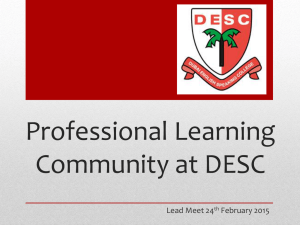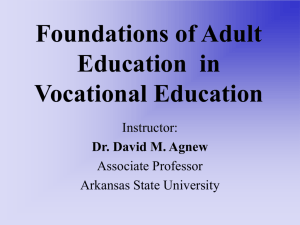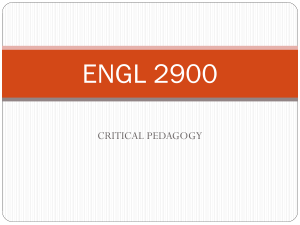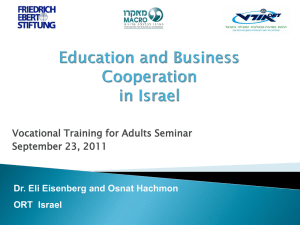A critical perspective on recent curriculum developments
advertisement
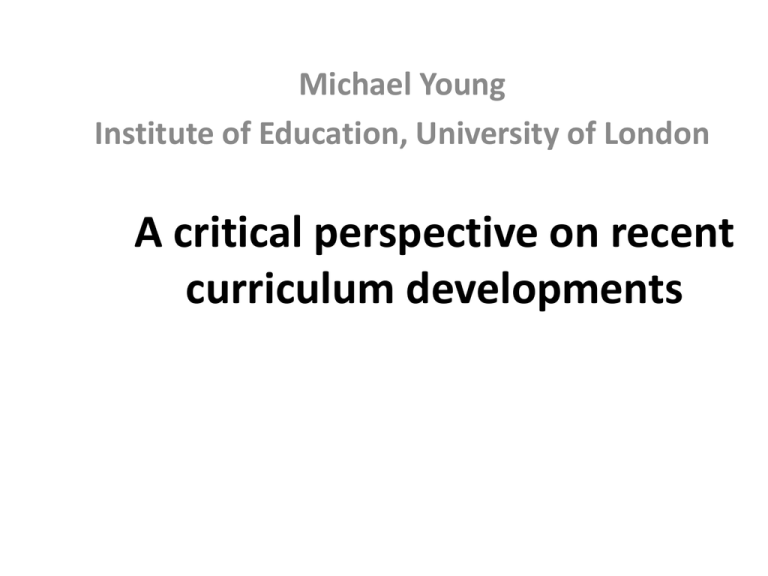
Michael Young Institute of Education, University of London A critical perspective on recent curriculum developments Introduction • Two trends in curriculum policy • An emphasis learner experiences and choices and on labour market demands • The assumption that: • (a) outcomes can be the basis for the curriculum and (b) the curriculum should be learner-led rather than knowledge- led. • Education is about enabling learners to engage with the ‘powerful knowledge’ • This is the knowledge they are unlikely to acquire at home or in their workplace • It is knowledge they will need if they are to become active citizens and workers in the complex modern world sometimes called a ‘knowledge society’. What is a curriculum and what is it for? • the educational role of the curriculum derives both from what schools are for and what they can and cannot do. • curriculum decisions have to be addressed for what they are- alternative ways of promoting the intellectual development of young people. • The more we focus on how the curriculum might solve social or economic problems - the less likely such a curriculum will promote the intellectual development of young people • and the less likely the social and economic problems will be addressed where they originate which is not in the school. England’s 2007 reforms of the National Curriculum • • they emphasised the relevance of the curriculum to the experience that students bring to school. In other words, they viewed the curriculum as an instrument for ‘motivating students to learn’. • 3.1 Why is this a problem? Treating the curriculum as an instrument for motivating learners • misunderstands what a curriculum can do • confuses two crucially separate educational concepts- curriculum and pedagogy• curriculum –refers to the knowledge that a country (or group of countries) agrees is important for all students to have access to • pedagogy-refers to the activities of teachers in motivating students and helping them to engage with the curriculum and find it meaningful . Curriculum and pedagogy 1 • Curriculum and pedagogy refer to the distinct responsibilities of curriculum designers and teachers and each is dependent on the other. • Teachers cannot create a curriculum on their own- they need a curriculum to guide them in what to teach. • Curriculum designers on the other hand, can only stipulate the important concepts that pupils need access to; they rely on the pedagogic expertise of teachers to motivate students and give those concepts a meaning • • Teachers must take account of the experiences that students bring to school in order to mobilising students to engage with the curriculum. • However that is quite different from including these student everyday experiences in the curriculum. • The curriculum, I argue, must be knowledge-led, not learner –led or experience-led. The Curriculum and the purposes of schooling • The curriculum expresses the fundamental purpose of schooling • It is to take pupils beyond their experience in ways which they would be unlikely to have access to at home. That surely is what schools are for. Likewise• the vocational curriculum should give students access to knowledge beyond their workplace experience ( a point I will return to) Back to curriculum and Pedagogy Curriculum and Pedagogy relate differently to school knowledge and to the everyday knowledge pupils bring to school in different ways. • – The curriculum should exclude the everyday knowledge of students whereas the everyday knowledge of students is a resource for the pedagogy of teachers. • – The curriculum must based on the specialist knowledge developed by researchers. Those who produce knowledge cannot prescribe the selection, sequencing and pacing of the curriculum. That is the task of curriculum designers and teachers. – It is teachers’ task to interpret the curriculum for the pupils they teach. Parents and students trust teachers in their professional role The vocational curriculum • • Vocational curricula have different purposes from school or academic curricula. They always points in two directions – outwards to different occupations and sectors as well as ‘inwards’ to the knowledge that is the basis of different occupations and sectors. • They place more emphasis on what a student can ‘do’ as well as what a student ‘knows’ • Different organizations r should be) involved in developing vocational curricula (Employers, trade unions, professional associations) • • The main criterion for the academic curriculum must be conceptual coherence“Does it enable the learner to progress to more powerful knowledge?”. • • An additional criterion for the vocational curriculum contextual coherence“ does the curriculum relate to workplaces that students are likely to face and the occupation and sector that they will find themselves in? • Where do we go from here? • Last year I was involved in a Project with the ILO on the implementation of outcomes-based NQFs in developing countries. It involved case studies from 16 countries in five continents. • A major lesson we learned from the study was; • it is institutions, not qualifications, that aremost important in improving education and trainingboth as sources of trust and sources of expertise. This takes me back to my initial reservations about outcomes-based approaches to curriculum reform.
